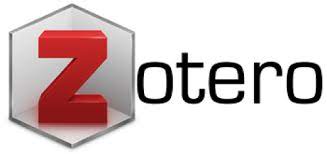Career Adaptability : Studi Deskriptif Pada Karyawan Gen Z
DOI:
https://doi.org/10.33557/jpsyche.v17i1.2510Keywords:
Career adaptability, employee, generation ZAbstract
Generation Z are individuals born between 1995 and 2012, so they are in a transition between the academic world and the world of work. The difference between the two situations certainly requires good adaptability so as not to have a negative impact on their psychological well-being. This study aims to get an overview of career adaptability in Generation Z employees. Career adaptability is individual readiness to cope with job changes and work situations in a corporate environment. This research is a quantitative study by asking 64 participants to fill out 24 items of the Career Adaptability Scale (CAAS) questionnaire developed by Savickas and Porfeli (2012). Based on the results of data analysis, men (M=4.271, SD=0.528) have slightly higher career adaptability than women (M=4.250, SD=0.443). Ages 20-21 years (M=4.413, SD=0.395) had the highest and lowest career adaptability at ages 22-23 years (M=4.164, SD=0.499). Gen Z who work for 1-2 years (M=4.358, SD=0.466) have high career adaptability compared to those under 6 months (M=4.25, SD=0.444) and 6 months-1 year (M=4.160, SD=0.466).
References
Dwidienawati, D., & Gandasari, D. (2018). Understanding Indonesia’s generation Z. International JOurnal of Engineering & Technology, 7(3.25), 245–252.
Flum, H., & Blustein, D. L. (2000). Reinvigorating the Study of Vocational Exploration: A Framework for Research. Journal of Vocational Behavior, 56(3), 380–404. https://doi.org/10.1006/jvbe.2000.1721
Fratricova, J., & Zuzana, K. (2018). Barriers to work motivation of generation. Journal of Human Resource Management XXI, 2, 28–39.
Hanifah, H., & Wardono, P. (2020). IDENTIFIKASI FAKTOR PEMBENTUK PERILAKU PENCARI KERJA GENERASI Z DI INDONESIA. Jurnal Aplikasi Bisnis Dan Manajemen, 6(3), 628–642. https://doi.org/10.17358/jabm.6.3.628
Hardianto, Y., & Sucihayati, R. B. (2018). Hubungan adversity quotient career adaptability pada koas Angkatan 2015 FKG “X” di RSGM. Psibernetika, 11(2), 79–90.
Hartono, R. M., & Gunawan, W. (2017). Hubungan Job Search Self-Efficacy dengan Career Adaptability. Jurnal Ilmiah Psikologi MIND SET, 8(02), 78–90. https://doi.org/10.35814/mindset.v8i02.326
Hasfi, N. (2014). Sejarah perkembangan internet sebagai wadah keberadaan cyber media. Universitas Terbuka.
Hastini, L. Y., Fahmi, R., & Lukito, H. (2020). Apakah Pembelajaran Menggunakan Teknologi dapat Meningkatkan Literasi Manusia pada Generasi Z di Indonesia? Jurnal Manajemen Informatika (JAMIKA), 10(1), 12–28. https://doi.org/10.34010/jamika.v10i1.2678
Hendryadi, H. (2014). Populasi dan sampel. Teori Online Personal Paper, 2, 1–6
.
Hirschi, A. (2009). Career adaptability development in adolescence: Multiple predictors and effect on sense of power and life satisfaction. Journal of Vocational Behavior, 74(2), 145–155. https://doi.org/10.1016/j.jvb.2009.01.002
Holmes, A., & Collins, L. (2017). Career planning and curriculum integration : Millennials on the “lost” coast. Journals Career and Curriculum Connection, 1–26.
Hurlock, E. B. (1980). Psikologi perkembangan : Suatu pendekatan sepanjang rentang kehidupan (5th ed.).
Ismail, D. H., & Nugroho, J. (2022). Kompetensi Kerja Gen Z di Era Revolusi Industri 4.0 dan Society 5.0. JIIP - Jurnal Ilmiah Ilmu Pendidikan, 5(4), 1300–1307. https://doi.org/10.54371/jiip.v5i4.566
Prasetyo, B., & Trisyanti, U. (2018). Revolusi industri 4.0 dan tantangan perubahan sosial . IPTEK, 5, 22–27.
Purwantini, L., & Pramintari, R. D. (2019). Generasi PHI : Adaptasi karier, kemampuan metakognitif, & dukungan sosial. Jurnal Selaras : Kajian Bimbingan Dan Konseling Serta Psikologi Pendidikan, 2(2), 29–46. https://doi.org/10.33541/Jsvol2iss1pp1
Raesti, P. P., & Ratih, R. (2016). Hubungan antara hardiness dengan adaptabilitas karir pada siswa SMK kelas XII. Jurnal Psikologi Pendidikan Dan Perkembangan.
Sa’diyah, E. K. (2019). Career adaptability pada mahasiswa Universitas Negeri Semarang [Skripsi sarjana]. Universitas Negeri Semarang.
Santrock, J. W. (2007). Remaja. Erlangga.
Savickas, M. L. (1997). Career Adaptability: An Integrative Construct for Life-Span, Life-Space Theory. The Career Development Quarterly, 45(3), 247–259. https://doi.org/10.1002/j.2161-0045.1997.tb00469.x
Savickas, M. L., & Porfeli, E. J. (2012). Career Adapt-Abilities Scale: Construction, reliability, and measurement equivalence across 13 countries. Journal of Vocational Behavior, 80(3), 661–673. https://doi.org/10.1016/j.jvb.2012.01.011
Singh, A. P., & Dangmei, J. (2016). Understanding the generation z : The fitur workforce. Asian Journal of Multidiciplinary Studied, 3(3), 1–5.
Stillman, D., & Stillman, J. (2017). Gen Z@ work how the next generation is transforming the workplace. PT. Gramedia Pustaka Utama.
Suhaida, D., & Azwar, I. (2018). Peran Dosen Dalam Mengembangkan Karakter Mandiri pada Mahasiswa. Sosial Horizon: Jurnal Pendidikan Sosial, 5(1), 1. https://doi.org/10.31571/sosial.v5i1.866
Sumargo, B. (2020). Teknik sampling. UNJ Press.
Tangkudung, J. P. M. (2014). Proses adaptasi menurut jenis kelamin dalam menunjang studi mahasiswa FISIP Universitas Sam Ratulangi. Journal Acta Diurma, 3(4), 1–11.
Tolentino, L. R., Garcia, P. R. J. M., Lu, V. N., Restubog, S. L. D., Bordia, P., & Plewa, C. (2014). Career adaptation: The relation of adaptability to goal orientation, proactive personality, and career optimism. Journal of Vocational Behavior, 84(1), 39–48. https://doi.org/10.1016/j.jvb.2013.11.004
Turner, A. (2015). Generation Z: Technology and Social Interest. The Journal of Individual Psychology, 71(2), 103–113. https://doi.org/10.1353/jip.2015.0021
Urbanaviciute, I., Udayar, S., & Rossier, J. (2019). Career adaptability and employee well-being over a two-year period: Investigating cross-lagged effects and their boundary conditions. Journal of Vocational Behavior, 111, 74–90. https://doi.org/10.1016/j.jvb.2018.10.013
Wibowo, M. A. P., & Permana, I. A. (2019). Peran Mediasi Thriving at Work pada Pengaruh Proactive Personality terhadap Career Adaptability. INOBIS: Jurnal Inovasi Bisnis Dan Manajemen Indonesia, 2(2), 284–298. https://doi.org/10.31842/jurnal-inobis.v2i2.91
Wong, J. G. W. S., Cheung, E. P. T., Chan, K. K. C., Ma, K. K. M., & Wa Tang, S. (2006). Web-Based Survey of Depression, Anxiety and Stress in First-Year Tertiary Education Students in Hong Kong. Australian & New Zealand Journal of Psychiatry, 40(9), 777–782. https://doi.org/10.1080/j.1440-1614.2006.01883.x
Yulianto, E ., Sanjaya, F., & Setiadi, T. (2020). PEMBANGUNAN APLIKASI UJIAN ONLINE MENGGUNAKAN AKSES TOKEN & ALGORITMA SIMPLE RANDOM SAMPLING. Symmetry: Pasundan Journal of Research in Mathematics Learning and Education, Volume 5. https://doi.org/10.23969/symmetry.v5i2.2988
Zacher, H. (2014). Individual difference predictors of change in career adaptability over time. Journal of Vocational Behavior, 84(2), 188–198. https://doi.org/10.1016/j.jv
Downloads
Published
Issue
Section
License

Jurnal Ilmiah Psyche by http://journal.binadarma.ac.id/index.php/jurnalpsyche is licensed under a Creative Commons Attribution-ShareAlike 4.0 International License.








